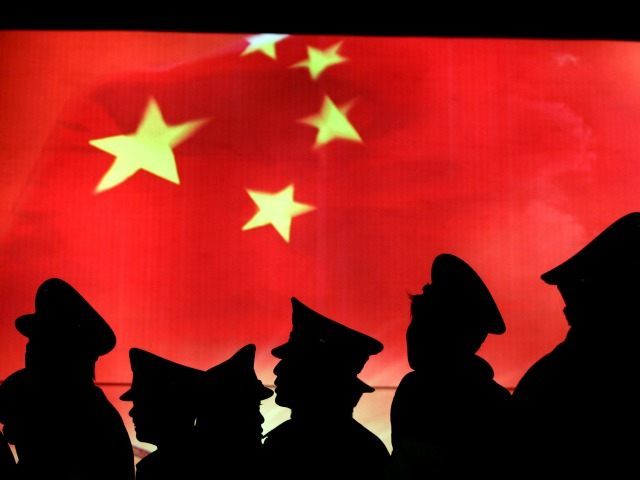China’s increasingly belligerent behavior against foreign NGO workers and journalists has triggered concern from EU officials in the country, who describe the trend as “extremely worrying” and are encouraging communist Chinese officials to allow foreign workers to do their jobs properly.
“I cannot but once again say that we are deeply concerned about all those issues. … We do hope it’s not representing the new normal yet. But we do see an extremely worrying trend, and that’s why all these cases are taken extremely seriously,” Hans Dietmar Schweisgut, the European Union ambassador to China, said this week. His remark was a response to a question regarding a number of arrests, expulsions, threats, and disappearances of foreign workers in China who had either attempted to document government human rights abuses or protect human rights activists.
Schweisgut was responding to a video posted by Chinese media of NGO worker Peter Dahlin, a Swedish national arrested for violating Chinese law. In the video, Dahlin confesses to “violat[ing] Chinese law” – though it is unclear which law – and says, “I have hurt the feelings of the Chinese people. I apologize sincerely for this.” He added that Chinese officials had treated him “fairly” during his arrest.
Dahlin works for the Chinese Urgent Action Working Group, an NGO that works in defense of human rights lawyers in China. He went missing en route to a flight out of China to Thailand, where the group believes Chinese officials arrested him.
The New York Times notes that Dahlin’s confession appears similar to three others by foreigners: “a Swedish publisher, Gui Minhai, two days earlier, and two other foreigners, Peter Humphrey and Charles Xue, in 2013.” The televised confessions, Amnesty International researcher Patrick Poon suggests, are intended to scare away foreigners who might feel compelled to defy Beijing’s ironclad grip on political speech in the nation. “By accusing a foreigner who works with an NGO of committing an ‘endangering national security’ offense, this will also give a chilling effect to foreigners who want to work for NGOs in China in the future,” Poon tells The New York Times.
Another incident involving European citizens occurred late last year, when the Chinese government expelled journalist Ursula Gauthier for her coverage of Beijing’s oppression of the Uighur ethnic minority, who mostly live in the westernmost regions of the country. Before being expelled, in a publication, Gauthier accused the Chinese government of exploiting the terrorist attack in Paris “to justify crackdowns on Uighur people in [western state] Xinjiang.” She told reporters the government offered her the option of apologizing. “From the beginning, they wanted me to apologise for supporting terrorism. … I said I never supported terrorism, how do you want me to apologise for something I have not written?” she said.
The Uighur ethnic group is majority Muslim and of Turkmen extraction. The Chinese government considers Uighur separatist groups a threat to national security, and has claimed that at least 300 Chinese Uighur citizens have joined the Islamic State terrorist group.
Among those foreigners accusing China of intimidating them into silence are Uighur dual citizens. In December, Reuters accused the Chinese government of forcing Uighur dual citizens to spy on their communities abroad, threatening to attack, imprison, or otherwise abuse family still in China. At least one Uighur dual Chinese/Canadian citizen told Reuters that police forced him into interrogation the last time he went home to visit family. “When you’re here, we can do whatever we want,” police told him.

COMMENTS
Please let us know if you're having issues with commenting.